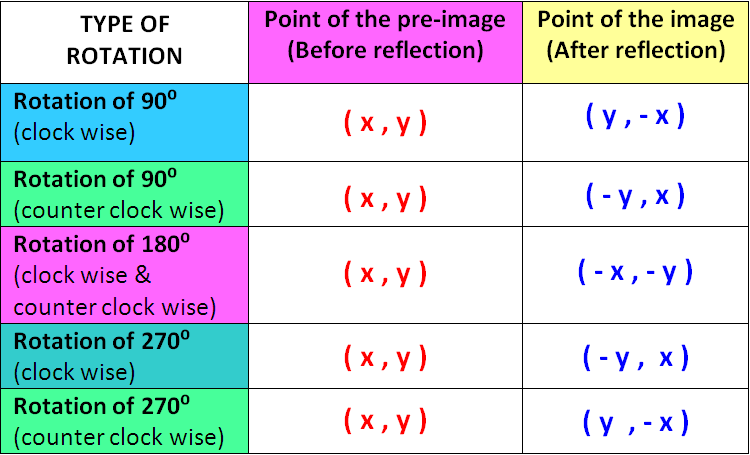Points A and B are at #(2 ,5 )# and #(6 ,2 )#, respectively. Point A is rotated counterclockwise about the origin by #(3pi)/2 # and dilated about point C by a factor of #1/2 #. If point A is now at point B, what are the coordinates of point C?
2 Answers
Explanation:
 https://teacher.desmos.com/activitybuilder/custom/566b16af914c731d06ef1953
https://teacher.desmos.com/activitybuilder/custom/566b16af914c731d06ef1953
New coordinates of A after
Explanation:
#"under a counterclockwise rotation about the origin of "(3pi)/2#
#• " a point "(x,y)to(y,-x)#
#A(2,5)toA'(5,-2)" where A' is the image of A"#
#vec(CB)=color(red)(1/2)vec(CA')#
#ulb-ulc=1/2(ula'-ulc)#
#ulb-ulc=1/2ula'-1/2ulc#
#1/2ulc=ulb-1/2ula'#
#color(white)(1/2ulc)=((6),(2))-1/2((5),(-2))#
#color(white)(1/2ulc)=((6),(2))-((5/2),(-1))=((7/2),(3))#
#ulc=2((7/2),(3))=((7),(6))#
#rArrC=(7,6)#
